Merian Centre / About the MECAM / Partners
Marburg University
Marburg University, with its 25,000 students, has a research centre for regional studies: the Centre for Near and Middle East Studies (CNMS). The CNMS is involved in MECAM along with other interdisciplinary institutions and departments, including the Centre for Conflict Studies, the Department of History and Cultural Studies, the Departments of Media Studies and Romance Philology, and the Department of Mathematics and Computer Science.
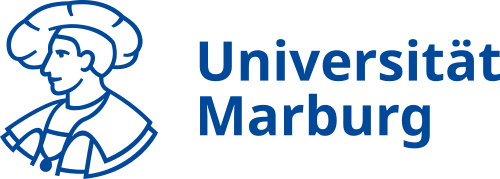
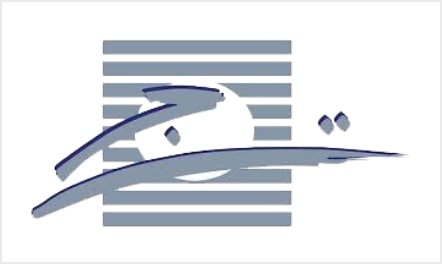
Université de Tunis
Université de Tunis was founded in 1960. Today, as it counts nearly 20,000 students, it is one of the largest universities in Tunisia. It has an extensive research and teaching portfolio and enjoys a reputation for research excellence throughout the region.
Universität Leipzig
Universität Leipzig is a German university with approximately 30,000 students. Within MECAM’s institutional structure, the university is represented by the Geography Institute, the Oriental Studies Institute and the Small Business Training Program (SEPT). The Geography Institute’s focus is on the Mediterranean region.
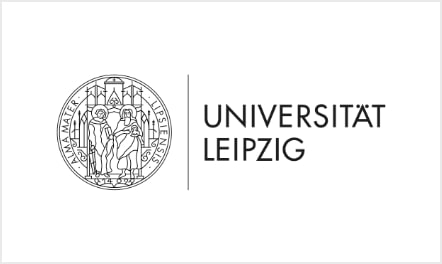
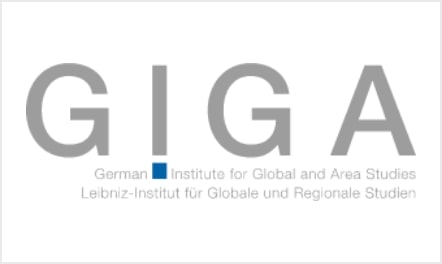
German Institute for Global and Area Studies (GIGA)
GIGA is an independent research institute based in Hamburg, Germany. It conducts research on politics, economics and society in Africa, Asia, Latin America, and the Middle East, as well as on global issues. Within MECAM, the GIGA Institute for Middle Eastern Studies (IMES) is highly involved.
Forum Transregionale Studien
Forum Transregionale Studien promotes the internationalization of research in humanities and social sciences. It enables collaboration between researchers from different disciplines and awards grants to researchers from all over the world.
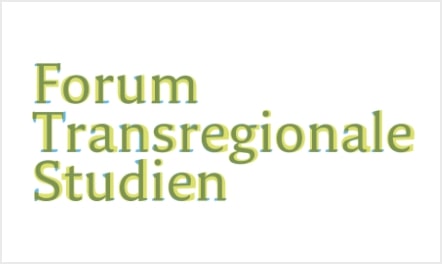
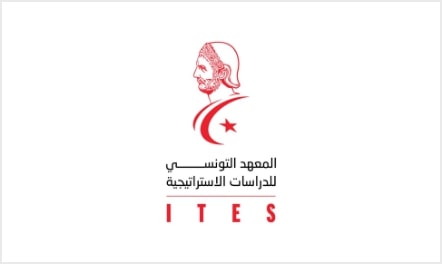
Institut Tunisien des Études Stratégiques (ITES)
ITES is a think tank based in Tunis. ITES elaborates and analyses studies in the field of applied policy research, strategy development and policy advice on various current issues in Tunisia, the Maghreb and other MENA countries.
Université de Sfax
Université de Sfax is located in the second largest city in Tunisia and in an important economic centre in the south of the country. It counts 35,000 students.
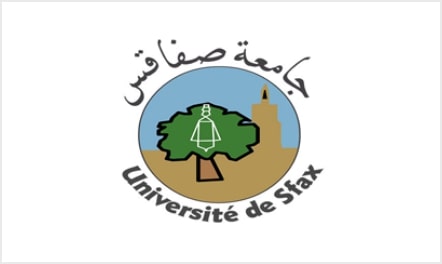
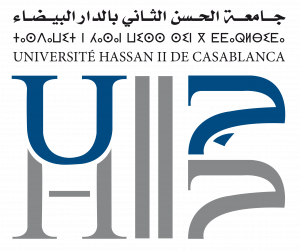
Université Hassan II de Casablanca (UH2C)
Founded in 1975, Hassan II University of Casablanca (UH2C) is a university firmly rooted in its local area, adapting its training and research activities to the expectations of its economic and institutional partners. It prepares over 142,000 students to obtain more than 300 diplomas, from Bac+2 to Bac+8, in multi-disciplinary courses in several fundamental and professional fields, meeting local, national and international needs.
With 7298 researchers and teacher-researchers and 125 multidisciplinary research laboratories, UH2C pursues an ambitious scientific policy in line with the various challenges facing society. It is also actively involved in several international programs to strengthen its collaboration in technology transfer and the modernization of higher education.
Open to the world, UH2C is constantly striving to increase its attractiveness and visibility on the international scene, notably through the development of research projects with international partners, the encouragement of inward and outward mobility for its students and academic and administrative staff, etc…
List of research projects of MECAM’s partner institutions and staff with linkages to MECAM
Partner: Marburg University
The project aims at strengthening the field of Peace and Conflict Studies in Hesse (consortium Leibniz-Institut Hessische Stiftung Friedens- und Konfliktforschung, Justus- Liebig-Universität Gießen, Technische Universität Darmstadt, Johann Wolfgang Goethe-Universität Frankfurt). Its focus on constructvist perspectives on violence and its transformation speaks to MECAM´s research agenda.
Partner: Marburg University
The network deals with the impact of postcolonial hierarchies on local conflict dynamics and security governance as well as the prospects of transformative justice. The consortium connects Merian centres as well as German partners: Arnold Bergstraesser Institut Freiburg (ABI)/ Maria Sibylla Merian Institute for Advanced Studies in Africa (MIASA); Marburg University/Zentrum für Konfliktforschung (ZfK)/Maria Sibylla Merian Centre for Advanced Studies in the Maghreb (MECAM); Universität Bayreuth (UBAY)/Exzellenzcluster Africa Multiple; Universität Erfurt (UE) mit Center for Political Practices and Orders/ Maria Sibylla- Merian–R. Tagore International Centre of Advanced Studies “Metamorphosen des Politischen” (ICAS-MP).
Partner: Marburg University
The project intends to conceptualize a binational PhD-program on transformative justice that brings together Marburg University (UMR), Justus- Liebig Universität Gießen (JLU) and Colombian universities forming part of the German-Colombian Institute for Peace Research (CAPAZ). The project includes a comparative perspective that connects to MECAM’s research on “memory and justice”.
Partner: Marburg University
Led by Rachid Ouaissa and Hans Jürgen Burchardt, the project aims to explore the crisis scenarios, possibilities for change and the persistence of the development model of commodity exports against the backdrop of the ecological transition through the cooperation of two regional and two Merian centres in a transregional comparison between Latin America and the Maghreb. This will contribute to (cross-)area research and generate recommendations for policy and development cooperation.
Partner: GIGA
Project led by Prof. Eckart Woertz and Prof. Amrita Narlikar (in cooperation with Prof. Ulrich Mücke and Prof. Jürgen Zimmerer, Department of Global History, University of
Hamburg), thematic focus on world order narratives in the Global South regions of Asia, Latin America, the Middle East and North Africa as well as Sub-Saharan Africa. Within
WONAGO, the Moroccan postdoctoral research fellow Dr. Khalil Dahbi examines the transnational networks of the left in the Maghreb.
Partner: GIGA
Within the international partner consortium, the GIGA IMES team coordinates Work Package 4 “Comparing Crises” and isled by Dr. Christiane Fröhlich; further IMES colleagues are Dr.André Bank and Dr. Lea Müller-Funk; the thematic focus is on comparing patterns of migration governance in the Maghreb, the Mashriq and the Horn of Africa; field and archival research has been conducted in eight countries, a particular focus has been on the Maghreb countries of Libya, Morocco and Tunisia.
Partner: GIGA
The SAGE-Centre focuses on the sustainable adaptation to climate change in the Middle East; it aims to bring together researchers to form a transdisciplinary network from various
Arab, Israeli and European countries; at the GIGA IMES, throject is co-led by Dr. Christiane Fröhlich and Prof. Eckart Woertz.
Partner: GIGA
Led by Dr. Maria Josua, this research project offers a new perspective on how repression can sustain authoritarianism. It focuses on Tunisia and Morocco – two countries with divergent trajectories during the Arab uprisings. Bridging framing and autocracy research, the project develops a new concept of justifications of repression. It shows how their
application in different branches of government differs, why certain types of justifications are chosen, and what effect they have.
Partner: GIGA
Led by Dr. Jens Heibach, the research project undertakes a comparative-historical analysis of Iranian, Saudi-Arabian, and Turkish (IST) engagement in Africa from 1950s to 2020. First, the project will identify the periods of shifting IST engagement in Africa. Second, it will analyze the reasons why, and the conditions under which, IST have stepped up—or reduced—their foreign policy efforts in Africa. Third, it will develop midrange generalisations on middle-power engagement in external regions.
Partner: GIGA
Led by Dr. Thomas Richter, Prof Mariana Llanos, and Dr. David Kuehn, this research project assesses the impact of the COVID- 19 pandemic on the personalisation of executive power in 36 countries of the Global South. Personalisation of power has been particularly worrying in the Global South where constraints on the chief executives were often already weak prior to the pandemic. Among the countries examined will be several examples from the Middle East and North Africa.
Partner: GIGA
Led by Dr Thomas Richter, the GIGA sub-module of MOTRA starts from the historical conditions of the emergence of Islamist radicalisation outlined in the literature and delimits
corresponding potentials. To this end, the project follows current developments in the MENA by trying to identify newly forming and previously neglected trends of Islamist radicalisation.
Partner: GIGA
Within “Context Matters”, the project component of “trend analysis on COVID-19 effects on violent actors in the Global South” is led by Dr. André Bank, Dr. Julia Grauvogel and Prof. Sabine Kurtenbach (3/2021-3/2022); the project focuses on Latin America, the Middle East and North Africa as well as Sub- Saharan Africa, with one of the six short case studies examining the pandemic-social protest nexus in Tunisia.
Partner: Marburg University
Partner: Marburg University
Joint project Marburg University, Johannes- Gutenberg-Universität Mainz, Goethe-Universität Frankfurt (VW Foundation “Weltwissen – Structural Strengthening of Small Subjects”)
Partner: Marburg University
Partner: Philipps-UniversitätMarburg
Partner: Marburg University
Data visualisations in digital film historiography using the example of research on women in early cinema (DAVIF) Based in the MCDCI; Duration: 4/21 – 3/25; Volume: 1.3 million €; Head: Dr Sarah-Mai Dang
Partner: Universität Leipzig
Funded by the DAAD Excellence Initiative EXEED (BMZ funds), duration until 2025 with six-year extension option (including PhD program).
Pertner: Universität Leipzig
In 2016 with 9,000 and in 2021/22 with 12,000 face-to-face interviews in 12 Arab countries (funded by the Friedrich-Ebert- Foundation and the German Federal Ministry for Economic Cooperation and Development) (duration until 2024).
Partner: Universität Leipzig
Sponsored by the Alexander von Humboldt Foundation on “Youth Migration from MENA to EU. Do Political Grievances Matter?” (Duration until 12.2024).
Partner: Universität Leipzig
ded by the German Research Foundation (DFG) (duration until 6. 2025)
Partner: FTS
Kunsthistorisches Institut in Florence (KHI) and the Stiftung Preußischer Kulturbesitz, in cooperation with Humboldt- Universität zu Berlin and FTS (since 2019), a follow-up project of “Art Histories and Aesthetic Practices. Kunstgeschichte und ästhetische Praktiken,” a BMFTR -funded research program of the KHI in Florence (Max-Planck-Institute) and the FTS (2013- 2019)
Partner: FTS
Funded by the European Research Council (ERC) under the European Union’s Horizon 2020 research and innovation programme (Grant Agreement No. 851393), Principal Investigator: Dr. Anne-Marie McManus (2020-2025)
Partner: FTS
A joint project of the FTS and Democracy Reporting International, funded by Stiftung Mercator (since 2019)
Partner: FTS
BMFTR -funded joint research project of Europa-Universität Viadrina Frankfurt (Oder), Universität Potsdam and FTS (2021- 2024)
Marburg University
Bonacker, Thorsten (Centre for Conflict Studies), Professor of Peace and Conflict Studies
Buckley-Zistel, Susanne (Centre for Conflict Studies), Professor of Peace and Conflict Studies
Conze, Eckart (History and Cultural Studies), Professor of Modern and Contemporary History
Freisleben, Bernd (Mathematics and Computer Science), Professor of Computer Science
Pannewick, Friederike (Centre for Near and Middle Eastern Studies), Professor of Arabic Studies
Hagener, Malte (Institute of Media Studies), Professor of Media Studies, History, Theory and Aestheticism of the Cinema
Müller, Olaf (Romance Philology), Professor of French and Italian Literature and Cultural Studies
Oettler, Anika (Institute of Sociology), Professor of Social Development and Comparative Analysis of Social Structures
Ouaissa, Rachid (Centre for Near and Middle Eastern Studies), Head of the Near and Middle Eastern Policy Department
Stuchtey, Benedikt (History and Cultural Studies), Professor of Modern History
Universität Leipzig
Gertel, Jörg (Institute for Geography), Professor of Economic Geography and Global Studies
GIGA
Bank, André (GIGA Institute for Middle Eastern Studies), Acting Director and Senior Researcher
Richter, Thomas (GIGA Institute for MiddleEastern Studies), Research Fellow and Editor-in-Chief of GIGA Focus Middle East
Forum Transregionale Studien
Khalil, Georges (Forum Transregionale Studien, Berlin), Managing Director and Academic Coordinator
Université de Tunis
Sidhom, Habib (Université de Tunis), President of the University
Kchir, Khaled (Université de Tunis), Faculty of Human and Social Sciences of Tunis
Institut Tunisien des Études Stratégiques (ITES)
Ben Jannet, Sami (Institut Tunisien des Études Stratégiques, Tunis), Director General
Université de Sfax
Mokni, Abdelwahed (Université de Sfax), President of the University
